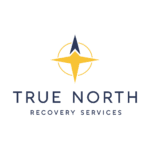Recovery is about more than just stopping substance use—it’s about rebuilding your life with meaningful connections and purpose. Establishing a network of sober friends is a critical aspect of maintaining sobriety, and engaging in substance-free activities creates the foundation for lasting recovery success. The journey involves discovering new ways to socialize, have fun, and build relationships that support your commitment to sobriety. While this transition can feel challenging initially, it opens doors to authentic connections and experiences that substances never could provide.
Why Social Connection Matters in Recovery
The Science Behind Social Support
Social Support has been used as a measure for recovery because human connection directly impacts our ability to maintain sobriety. When you’re surrounded by people who understand your journey and support your goals, staying committed to recovery becomes significantly easier.
Key Benefits of Social Connection in Recovery:
- Reduces feelings of isolation and loneliness
- Provides accountability and encouragement
- Offers healthy coping strategies during difficult times
- Creates opportunities for personal growth and self-discovery
- Builds confidence through shared experiences
Breaking the Isolation Cycle
Addiction often creates social isolation. Recovery requires intentionally rebuilding those connections in healthy ways. Such communities offer a safe space where individuals can socialize without the temptation of substances, making the transition to sober living more manageable and enjoyable.
What Are Sober Social Activities?
Sober social activities are substance-free gatherings and pursuits that promote connection, fun, and personal growth. These activities help individuals in recovery build meaningful relationships while maintaining their sobriety goals. They range from structured support group meetings to recreational outings and creative pursuits.
Core Characteristics of Effective Recovery Activities
- Substance-free environments
- Supportive community atmosphere
- Opportunities for genuine connection
- Focus on personal growth and wellness
- Accessible to people at different recovery stages
How Do You Socialize Without Drinking or Using Substances?
The key to sober socializing is finding activities that naturally create connection without relying on substances as social lubricants. Start with low-pressure environments where conversation flows naturally around shared interests or activities.
Getting Started: Your First Steps
Begin with structured activities where the focus is on the activity itself rather than social performance. The cinema, exercise classes, and low-key competitive activities like pool or table tennis are all activities with low barriers to entry that can feel easier to engage with early in recovery.
Progressive Approach:
- Start with one-on-one activities with trusted friends
- Join small group activities (3-5 people)
- Gradually work up to larger social gatherings
- Lead or organize activities as confidence builds
Best Social Activities for People in Recovery
Outdoor Adventures and Nature Activities
Get outdoors: Go hiking, biking, or kayaking. Being in nature fosters connection while providing natural stress relief and mood enhancement.
Popular Outdoor Activities:
| Activity | Benefits | Getting Started |
|---|---|---|
| Hiking | Physical fitness, stress relief, group bonding | Join local hiking meetups or recovery hiking groups |
| Cycling | Cardiovascular health, exploration, community | Find cycling clubs that welcome beginners |
| Kayaking/Canoeing | Mindfulness, adventure, teamwork | Look for guided tours or beginner classes |
| Rock Climbing | Trust building, problem-solving, achievement | Start at indoor climbing gyms with classes |
| Camping | Digital detox, deep conversations, self-reliance | Begin with car camping at established campgrounds |
Creative and Artistic Pursuits
Try Creative Hobbies – Join an art class or workshop to express yourself while connecting with others who share similar interests.
Creative Activity Options:
- Art classes (painting, pottery, sculpture)
- Music groups (choirs, bands, open mic nights)
- Writing workshops and book clubs
- Photography clubs and photo walks
- Cooking classes and food clubs
- Crafting circles (knitting, woodworking, jewelry making)
Fitness and Wellness Activities
Physical activity naturally boosts mood and creates opportunities for social connection without the need for substances.
Fitness-Based Social Options:
- Group fitness classes (yoga, spin, martial arts)
- Running or walking clubs
- Sports leagues (softball, basketball, tennis)
- Dance classes and social dancing
- Swimming groups
- Outdoor fitness bootcamps
Volunteer Work and Community Service
Giving back creates purpose while connecting you with like-minded individuals who value service and community impact.
Volunteer Opportunities:
- Animal shelters and rescue organizations
- Food banks and soup kitchens
- Environmental cleanup projects
- Mentoring programs
- Community gardens
- Habitat for Humanity builds
Educational and Personal Development
Learning new skills alongside others creates natural conversation topics and shared experiences.
Learning-Based Activities:
- Language exchange groups
- Professional development workshops
- Computer and technology classes
- Financial literacy seminars
- Public speaking groups (Toastmasters)
- Academic classes at community colleges
Where Can I Find Sober Activities Near Me?
The best places to find substance-free activities include recovery community centers, religious organizations, fitness centers, libraries, and community colleges. Many cities now have dedicated sober social groups and meetups specifically for people in recovery.
Online Resources for Finding Activities
Digital Platforms:
- Meetup.com (search “sober,” “recovery,” or specific interests)
- Facebook groups for local sober communities
- Recovery community center websites
- Eventbrite for alcohol-free events
- Local government recreation department websites
Community-Based Resources
Physical Locations to Explore:
- Recovery community centers
- YMCAs and community recreation centers
- Libraries with programming calendars
- Religious and spiritual centers
- Coffee shops with community boards
- College campuses with continuing education programs
Building Your Own Sober Social Network
Tips for creating sober networks include: Joining local sober meetups or recovery group activities. Volunteering in your community to meet others with similar values. Participating in hobby-based groups, like fitness activities.
Steps to Build Your Network:
- Start with recovery-specific groups to meet others who understand your journey
- Expand to interest-based groups once you feel more confident
- Be consistent in attendance to build relationships over time
- Take initiative by suggesting coffee dates or activity meetups
- Stay open to different types of people and activities
Common Questions About Social Activities in Recovery
What If I Feel Anxious About Social Situations?
It’s completely normal to feel anxious about socializing in early recovery. Start with low-pressure activities and practice self-compassion as you rebuild social confidence. Consider talking to a therapist about social anxiety strategies.
Anxiety Management Tips:
- Arrive early to activities to settle in gradually
- Bring a trusted friend for initial support
- Have an exit strategy planned
- Practice conversation starters beforehand
- Focus on listening rather than performing
How Do I Handle Questions About Why I Don’t Drink?
You don’t owe anyone a detailed explanation about your sobriety. Simple responses like “I don’t drink,” “I’m the designated driver,” or “I’m on medication” are perfectly acceptable.
What If My Old Friends Only Want to Do Things Involving Substances?
It’s common for relationships to change during recovery. Some friendships may naturally fade while new, more supportive connections develop. Focus on building relationships that honor your recovery goals.
How Long Does It Take to Feel Comfortable Socializing Sober?
The timeline varies for everyone, but most people report feeling more comfortable within 3-6 months of consistent sober socializing. It may take some time for one’s brain chemistry to adjust to life without the presence of addictive substances. However, people who make it past the early stages of recovery often find that their energy and relative happiness rises.
Creating Your Personal Social Activity Plan
Assessing Your Interests and Comfort Level
Before diving into new activities, take time to reflect on what genuinely interests you and what feels manageable at your current recovery stage.
Self-Assessment Questions:
- What activities did you enjoy before addiction became a problem?
- Are you more comfortable in small groups or larger gatherings?
- Do you prefer structured activities or open-ended social time?
- What time of day do you feel most social and energetic?
- What are your physical fitness and mobility considerations?
Setting Realistic Social Goals
Start small and build gradually. Setting achievable goals helps maintain motivation and prevents overwhelm.
Sample Goal Progression:
- Week 1-2: Attend one structured activity (support group, fitness class)
- Week 3-4: Try two different types of activities
- Month 2: Invite someone for coffee or a walk
- Month 3: Attend a social event or volunteer opportunity
- Month 4+: Consider organizing an activity for others
Tracking Your Progress
Keep a simple journal of your social activities and how they make you feel. Note what works well and what doesn’t, adjusting your approach as needed.
Overcoming Common Challenges
Dealing with Social Fatigue
Social fatigue is normal, especially in early recovery. Balance social activities with alone time to recharge and process new experiences.
Signs You Need a Break:
- Feeling overwhelmed or irritable after social activities
- Avoiding commitments you previously enjoyed
- Experiencing sleep disruption or mood changes
- Feeling like you’re “performing” rather than being authentic
Managing Different Recovery Timelines
Not everyone in recovery groups will be at the same stage. Learn from those with more experience while offering support to newcomers when appropriate.
Addressing Financial Constraints
Many sober activities are free or low-cost. Focus on community resources, outdoor activities, and volunteer opportunities if budget is a concern.
Budget-Friendly Options:
- Free community events and festivals
- Library programs and book clubs
- Public parks and hiking trails
- Free fitness classes in parks
- Volunteer opportunities
- Potluck-style social gatherings
The Long-Term Benefits of Building Sober Connections
Enhanced Quality of Life
Social connections are essential in addiction recovery. Expand your social circle and widen your support network by finding sober groups and activities to participate in. This will open the door to developing new friendships with others who prioritize sobriety, just like you do.
Sustained Recovery Success
Strong social networks significantly improve long-term recovery outcomes by providing:
- Ongoing motivation and accountability
- Practical support during challenging times
- Positive role models and inspiration
- Opportunities for service and purpose
- Joy and fulfillment that supports overall well-being
Personal Growth and Self-Discovery
Engaging in diverse activities helps you discover new aspects of yourself and develop interests that may have been suppressed during active addiction.
Building a Supportive Community Around Recovery
Creating Inclusive Spaces
Whether you’re joining existing groups or starting new ones, focus on creating welcoming environments where everyone feels valued and supported.
Principles for Inclusive Communities:
- Welcome newcomers warmly
- Respect different recovery paths and timelines
- Maintain confidentiality and trust
- Focus on shared interests rather than just recovery topics
- Celebrate milestones and achievements together
Giving Back to the Recovery Community
As you become more established in your sober social life, consider ways to support others who are just beginning their journey.
Ways to Give Back:
- Mentor newcomers in recovery
- Help organize group activities
- Share your story at meetings or events
- Volunteer with recovery organizations
- Support local treatment centers and halfway houses
Your Path to Connected, Sober Living
Building a sober social life is an essential part of comprehensive recovery support. At True North Recovery Services, we understand that recovery is a multifaceted approach that extends beyond traditional treatment. Our Denver-based outpatient addiction treatment program offers compassionate care for those facing substance use disorders, including opioid and alcohol addiction. We provide comprehensive medical care, recovery support services, and help our clients explore new pathways that support their recovery journey. Our holistic approach recognizes that building meaningful connections and engaging in fulfilling activities are crucial components of lasting sobriety.
Remember that developing a robust social life takes time, patience, and consistent effort. Start where you feel comfortable, be open to new experiences, and trust that genuine connections will develop as you show up authentically for yourself and others. Your commitment to sober socializing not only supports your own recovery but also contributes to building stronger, more connected communities for everyone in the recovery journey.
The path to connected, sober living is unique for each person, but the destination—a life rich with meaningful relationships and purposeful activities—is worth every step of the journey.


